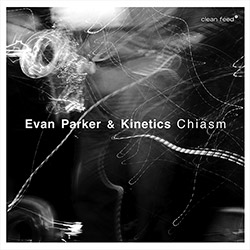
Performing live at The Vortex in London and live at the DKDM studio in Copenhagen, legendary UK saxophonist Evan Parker joins Swedish pianist Jacob Anderskov's trio Kinetics with Adam Pultz Melbye on bass and Anders Vestergaard on drums, recording these four masterful improvisations of full-force momentum, concentration, exploration and exultation.
Out of Stock
Quantity in Basket: None
Log In to use our Wish List
Shipping Weight: 3.00 units
Sample The Album:
Evan Parker-tenor saxophone
Jacob Anderskov-piano
Adam Pultz Melbye-bass
Anders Vestergaard-drums
Click an artist name above to see in-stock items for that artist.
UPC: 5609063005257
Label: Clean Feed
Catalog ID: CF525
Squidco Product Code: 27584
Format: CD
Condition: New
Released: 2019
Country: Portugal
Packaging: Cardboard Gatefold
Tracks 1 and 4 recorded live at The Vortex, in London, England, on February 25th 2018 by Ali Ward
Track 2 and 3 recorded at DKDM, in Copenhagen, Denmark, on February 23rd 2018 by Bjorn Gjessing and Henrik Holst.
"It's difficult to say if it was Evan Parker who invited Jacob Anderskov's trio Kinetics to start this new collaborative project or if the initiative came from the Danish pianist. The doubt results from the permanent equilibrium of forces detected in "Chiasm": the British saxophonist can be the protagonist, the frontline voice, but the music reflects in every step the most important motivation for Anderskov and his Kinetic partners, Adam Pultz Melbye and Anders Vestergaard: to celebrate the entire evolution of jazz by means of using some particularities of that patrimony through a compositional concept turned to the invention of the future. Either way, we can understand, just by hearing the music, why this connection with Parker is happening. The London-based musician is an illustrious representative in present days of the long line of innovators in both the tenor and the soprano saxophones: nobody else could symbolize better the double focus of this record in History and in the creation of the New. This task to detect and distill the old soul of jazz, at the same time refreshing it, comes from a radical point of view - radical because it goes to the roots in order to finally reach the flowers and make them bloom. Are you fascinated by the way Coltrane resounds in Evan Parker's playing these last few years? Well, there's plenty of that here for your delight... Recorded at London's Vortex club and live in the studio in Copenhagen, Chiasm is a documentation of what interplay may sound like when an established piano trio meets a master of improvisation. On the four improvised tracks, the group explores melodic, timbral and rhythmical structures on both micro and macro levels, creating a matrix of nonlinear dynamics from which emerges an oscillating and shimmering sonic image, propelled by a shared approach to the real-time generation of structure and form."-Clean Feed

The Squid's Ear!
Artist Biographies
• Show Bio for Evan Parker "Evan Parker was born in Bristol in 1944 and began to play the saxophone at the age of 14. Initially he played alto and was an admirer of Paul Desmond; by 1960 he had switched to tenor and soprano, following the example of John Coltrane, a major influence who, he would later say, determined "my choice of everything". In 1962 he went to Birmingham University to study botany but a trip to New York, where he heard the Cecil Taylor trio (with Jimmy Lyons and Sunny Murray), prompted a change of mind. What he heard was "music of a strength and intensity to mark me for life ... l came back with my academic ambitions in tatters and a desperate dream of a life playing that kind of music - 'free jazz' they called it then." Parker stayed in Birmingham for a time, often playing with pianist Howard Riley. In 1966 he moved to London, became a frequent visitor to the Little Theatre Club, centre of the city's emerging free jazz scene, and was soon invited by drummer John Stevens to join the innovative Spontaneous Music Ensemble which was experimenting with new kinds of group improvisation. Parker's first issued recording was SME's 1968 Karyobin, with a line-up of Parker, Stevens, Derek Bailey, Dave Holland and Kenny Wheeler. Parker remained in SME through various fluctuating line-ups - at one point it comprised a duo of Stevens and himself - but the late 1960s also saw him involved in a number of other fruitful associations. He began a long-standing partnership with guitarist Bailey, with whom he formed the Music Improvisation Company and, in 1970, co-founded Incus Records. (Tony Oxley, in whose sextet Parker was then playing, was a third co-founder; Parker left Incus in the mid-1980s.) Another important connection was with the bassist Peter Kowald who introduced Parker to the German free jazz scene. This led to him playing on Peter Brötzmann's 1968 Machine Gun, Manfred Schoof's 1969 European Echoes and, in 1970, joining pianist Alex von Schlippenbach and percussionist Paul Lovens in the former's trio, of which he is still a member: their recordings include Pakistani Pomade, Three Nails Left, Detto Fra Di Noi, Elf Bagatellen and Physics. Parker pursued other European links, too, playing in the Pierre Favre Quartet (with Kowald and Swiss pianist Irene Schweizer) and in the Dutch Instant Composers Pool of Misha Mengelberg and Han Bennink. The different approaches to free jazz he encountered proved both a challenging and a rewarding experience. He later recalled that the German musicians favoured a "robust, energy-based thing, not to do with delicacy or detailed listening but to do with a kind of spirit-raising, a shamanistic intensity. And l had to find a way of surviving in the heat of that atmosphere ... But after a while those contexts became more interchangeable and more people were involved in the interactions, so all kinds of hybrid musics came out, all kinds of combinations of styles." A vital catalyst for these interactions were the large ensembles in which Parker participated in the 1970s: Schlippenbach's Globe Unity Orchestra, Chris McGregor's Brotherhood of Breath, Barry Guy's London Jazz Composers Orchestra (LJCO) and occasional big bands led by Kenny Wheeler. In the late 70s Parker also worked for a time in Wheeler's small group, recording Around Six and, in 1980, he formed his own trio with Guy and LJCO percussionist Paul Lytton (with whom he had already been working in a duo for nearly a decade). This group, together with the Schlippenbach trio, remains one of Parker's top musical priorities: their recordings include Tracks, Atlanta, Imaginary Values, Breaths and Heartbeats, The Redwood Sessions and At the Vortex. In 1980, Parker directed an Improvisers Symposium in Pisa and, in 1981, he organised a special project at London's Actual Festival. By the end of the 1980s he had played in most European countries and had made various tours to the USA, Canada, Australia, New Zealand and Japan. ln 1990, following the death of Chris McGregor, he was instrumental in organising various tributes to the pianist and his fellow Blue Notes; these included two discs by the Dedication Orchestra, Spirits Rejoice and lxesa. Though he has worked extensively in both large and small ensembles, Parker is perhaps best known for his solo soprano saxophone music, a singular body of work that in recent years has centred around his continuing exploration of techniques such as circular breathing, split tonguing, overblowing, multiphonics and cross-pattern fingering. These are technical devices, yet Parker's use of them is, he says, less analytical than intuitive; he has likened performing his solo work to entering a kind of trance-state. The resulting music is certainly hypnotic, an uninterrupted flow of snaky, densely-textured sound that Parker has described as "the illusion of polyphony". Many listeners have indeed found it hard to credit that one man can create such intricate, complex music in real time. Parker's first solo recordings, made in 1974, were reissued on the Saxophone Solos CD in 1995; more recent examples are Conic Sections and Process and Reality, on the latter of which he does, for the first time, experiment with multi-tracking. Heard alone on stage, few would disagree with writer Steve Lake that "There is, still, nothing else in music - jazz or otherwise - that remotely resembles an Evan Parker solo concert." While free improvisation has been Parker's main area of activity over the last three decades, he has also found time for other musical pursuits: he has played in 'popular' contexts with Annette Peacock, Scott Walker and the Charlie Watts big band; he has performed notated pieces by Gavin Bryars, Michael Nyman and Frederic Rzewski; he has written knowledgeably about various ethnic musics in Resonance magazine. A relatively new field of interest for Parker is improvising with live electronics, a dialogue he first documented on the 1990 Hall of Mirrors CD with Walter Prati. Later experiments with electronics in the context of larger ensembles have included the Synergetics - Phonomanie III project at Ullrichsberg in 1993 and concerts by the new EP2 (Evan Parker Electronic Project) in Berlin, Nancy and at the 1995 Stockholm Electronic Music Festival where Parker's regular trio improvised with real-time electronics processed by Prati, Marco Vecchi and Phillip Wachsmann. "Each of the acoustic instrumentalists has an electronic 'shadow' who tracks him and feeds a modified version of his output back to the real-time flow of the music." The late 80s and 90s brought Parker the chance to play with some of his early heroes. He worked with Cecil Taylor in small and large groups, played with Coltrane percussionist Rashied Ali, recorded with Paul Bley: he also played a solo set as support to Ornette Coleman when Skies of America received its UK premiere in 1988. The same period found Parker renewing his acquaintance with American colleagues such as Anthony Braxton, Steve Lacy and George Lewis, with all of whom he had played in the 1970s (often in the context of London's Company festivals). His 1993 duo concert with Braxton moved John Fordham in The Guardian to raptures over "saxophone improvisation of an intensity, virtuosity, drama and balance to tax the memory for comparison". Parker's 50th birthday in 1994 brought celebratory concerts in several cities, including London, New York and Chicago. The London performance, featuring the Parker and Schlippenbach trios, was issued on a highly-acclaimed two-CD set, while participants at the American concerts included various old friends as well as more recent collaborators in Borah Bergman and Joe Lovano. The NYC radio station WKCR marked the occasion by playing five days of Parker recordings. 1994 also saw the publication of the Evan Parker Discography, compiled by ltalian writer Francesco Martinelli, plus chapters on Parker in books on contemporary musics by John Corbett and Graham Lock. Parker's future plans involve exploring further possibilities in electronics and the development of his solo music. They also depend to a large degree on continuity of the trios, of the large ensembles, of his more occasional yet still long-standing associations with that pool of musicians to whose work he remains attracted. This attraction, he explained to Coda's Laurence Svirchev, is attributable to "the personal quality of an individual voice". The players to whom he is drawn "have a language which is coherent, that is, you know who the participants are. At the same time, their language is flexible enough that they can make sense of playing with each other ... l like people who can do that, who have an intensity of purpose." " ^ Hide Bio for Evan Parker • Show Bio for Jacob Anderskov "Jacob Anderskov is a pianist, composer and bandleader from Copenhagen. He has released more than 25 albums as a bandleader and co-leader since his debut in 2001. He has received numerous awards and hailed by the international press as an outstanding voice in contemporary music. Anderskov has performed in most countries in the western hemisphere with his own projects. His oeuvre encompasses everything from improvised works in small groups to almost thoroughly composed material for larger ensembles. Anderskov's music often incorporates improvisation, colouring, or new ways of bridging the continuum between the composed and the undefined. In the recent years he has also had several projects with classically trained musicians, playing more exactly composed material of his, with or without Anderskov himself participating in the performances as an improviser or leader. Among the bands he has been forming and leading are Anderskov Accident, Agnostic Revelations, Resonance (Formerly Known As Jacob Anderskov's Strings Percussion &Amp; Piano), Kinetics, Antioxidanterne, Jacob Anderskov Solo, Airto Moreira - Jacob Anderskov Duo, Jacob Anderskov Trio, Jacob Anderskov PÅ Dansk ("Jacob Anderskov In Danish"), And Doctor Structure. Jacob Anderskov graduated from the Rhythmic Music Conservatory, Copenhagen in 2002, his studies including a 1-year stay in New York (1999-2000). He was one of the founding members of ILK Music (2003-2004), and the first ILK chairman (2004-2008). He is currently employed as an Associate Professor ("lektor") at Rytmisk Musikkonservatorium, Copenhagen." ^ Hide Bio for Jacob Anderskov • Show Bio for Adam Pultz Melbye "Adam Pultz Melbye is a Double bassist who also plays electronics, and is a composer. Born in Ribe, Denmark in 1981. Currently living in Berlin. Working mainly in the field of improvisation and structured sound, Adam has toured Europe, the US and Japan, performing solo concerts, in duo with dancer Akemi Nagao, the orchestras Toggle, Jitter, Angel, Flamingo as well as with musicians such as Pat Thomas, Mark Sanders, Evan Parker, Paul Lovens, Yasuhiro Yoshigaki and Michiyo Yagi. Playing electronics, Adam performs in the duo Toggle (with Mads Emil Nielsen) and Ouroboros with Chris Heenan and Michael Vorfeld. Appears on 25+ albums. Initiator of the release platform Noema." ^ Hide Bio for Adam Pultz Melbye • Show Bio for Anders Vestergaard "Anders Vestergaard is a drummer and Improviser. Born 1989 in Denmark and currently residing in Copenhagen. Working with drums, cymbals and other objects in both refined and precise ways and in brutal and stupid ways. Collaborators include: Karl Bjorå, Signe Dahlgreen, Danielle Dahl, Lars Bech Pilgaard, Henrik Nørstebø, Finn Loxbo, Jacob Anderskov, Adam Pultz Melbye, Ole Mofjell, Niklas Adam etc." ^ Hide Bio for Anders Vestergaard
4/9/2025
Have a better biography or biography source? Please Contact Us so that we can update this biography.
4/9/2025
Have a better biography or biography source? Please Contact Us so that we can update this biography.
4/9/2025
Have a better biography or biography source? Please Contact Us so that we can update this biography.
4/9/2025
Have a better biography or biography source? Please Contact Us so that we can update this biography.
Track Listing:
1. London Part I 18:16
2. Copenhagen Part I 4:36
3. Copenhagen Part II 7:54
4. London Part II 7:29
Clean Feed
Improvised Music
Free Improvisation
Jazz
London & UK Improv & Related Scenes
European Improvisation, Composition and Experimental Forms
Quartet Recordings
Parker, Evan
Staff Picks & Recommended Items
Top Sellers for 2019 by Customer Sales
Search for other titles on the label:
Clean Feed.

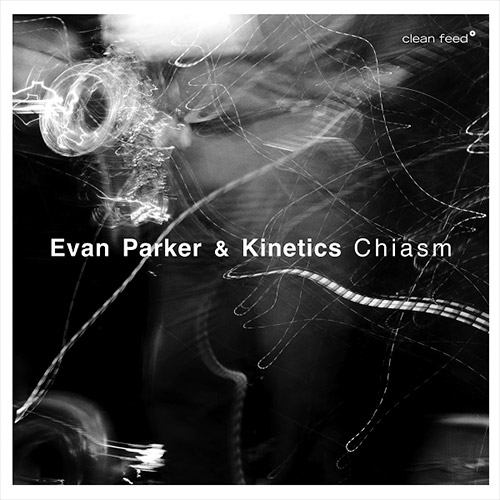

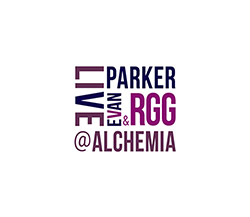
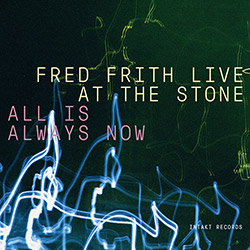


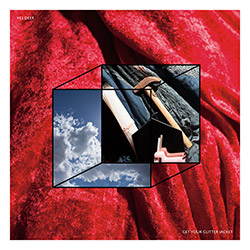



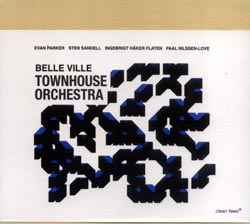
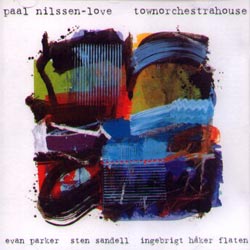
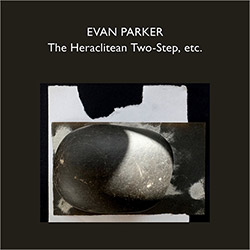

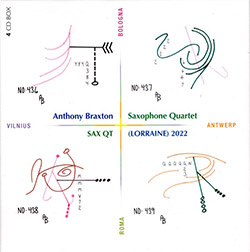




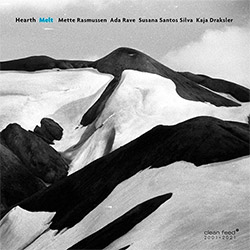

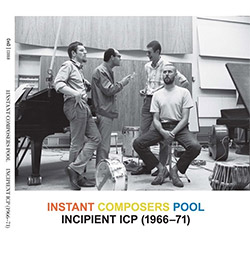
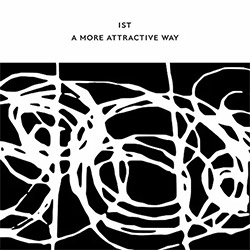



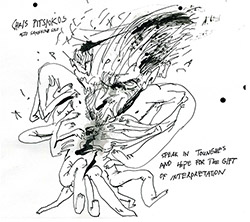



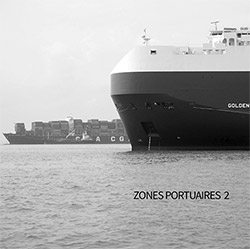
![111 (Michelle / Villamil): Live at Opus 40 [CASSETTE]](https://www.teuthida.com/productImages/misc4/35986.jpg)
![del Pino, Francisco / Charlotte Mundy: The Sea [CASSETTE]](https://www.teuthida.com/productImages/misc4/35987.jpg)

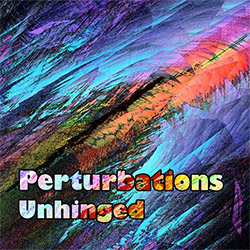

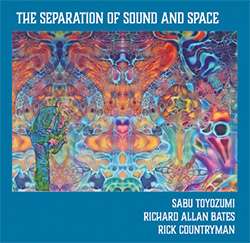


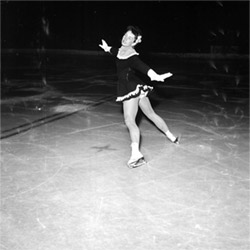
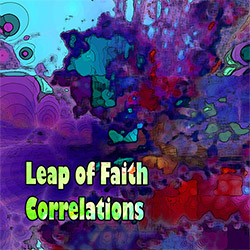

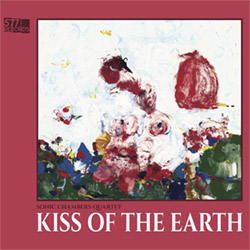

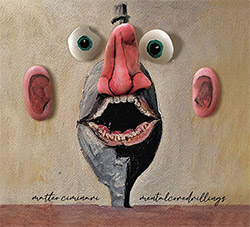
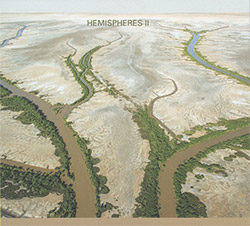
![Niblock, Phill / Anna Clementi / Thomas Stern: Zound Delta 2 [VINYL]](https://www.teuthida.com/productImages/misc4/34623.jpg)
![Yoko, Ono / The Great Learning Orchestra: Selected Recordings From Grapefruit [2 CDs]](https://www.teuthida.com/productImages/misc4/35841.jpg)

![Brotzmann, Peter / John Edwards / Steve Noble / Jason Adasiewicz: The Quartet [2 CDs]](https://www.teuthida.com/productImages/misc4/35975.jpg)
![Brotzmann, Peter / John Edwards / Steve Noble / Jason Adasiewicz: The Quartet [VINYL 2 LPs]](https://www.teuthida.com/productImages/misc4/35976.jpg)
![Thomas, Pat: The Solar Model of Ibn-Al Shatir [VINYL]](https://www.teuthida.com/productImages/misc4/36044.jpg)
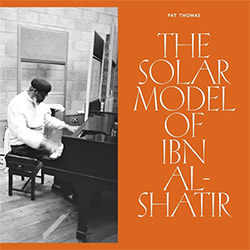



![Rodrigues, Ernesto / Nuno Torres / Guilherme Rodrigues: Whispers In The Moonlight - In Seven Movements [2CDs]](https://www.teuthida.com/productImages/misc4/35765.jpg)



![Cocks, Laura: FATHM [VINYL]](https://www.teuthida.com/productImages/misc4/36055.jpg)













![Schindler, Udo / Sandy Ewen / Damon Smith: Munich Sound Studies Vols. 4, 5 & 6 [3 CDs]](https://www.teuthida.com/productImages/misc4/35966.jpg)
![Turbulence Orchestra & Sub-Units: Smear Out the Difficulties (Double Live) [2 CDs]](https://www.teuthida.com/productImages/misc4/36048.jpg)

![Myers, David Lee : Tin Drop Tear [BOOK w/ DOWNLOAD]](https://www.teuthida.com/productImages/misc4/36030.jpg)

![Ackerley / Prymek / Turner: All Hope With Sleeping Minds [CASSETTE]](https://www.teuthida.com/productImages/misc4/35950.jpg)








![Olencki, Weston : Pearls Ground Down To Powder [VINYL]](https://www.teuthida.com/productImages/misc4/35956.jpg)
![Myers, David Lee: Oculus [2CDs]](https://www.teuthida.com/productImages/misc4/35857.jpg)


![dustsceawung: dustsceawung [CASSETTE w/ Download]](https://www.teuthida.com/productImages/misc4/35753.jpg)




![Halls of the Machine: Atmospheres For Lovers And Sleepers [CASSETTE w/ DOWNLOAD]](https://www.teuthida.com/productImages/misc4/35806.jpg)











![Zorn, John / JACK Quartet: The Complete String Quartets [2 CDs]](https://www.teuthida.com/productImages/misc4/35609.jpg)

![Lonsdale, Eden: Dawnings [2 CDs]](https://www.teuthida.com/productImages/misc4/35480.jpg)







![Sanna, Claudio: Compositori Sardi Contemporanei II [2 CDs]](https://www.teuthida.com/productImages/misc4/35317.jpg)







![Zurria, Manuel: Fame di Vento [3 CDs]](https://www.teuthida.com/productImages/misc4/35167.jpg)

![Electric Bird Noise / Derek Roddy: 8-10-22 [CD EP]](https://www.teuthida.com/productImages/misc4/35970.jpg)








![Elephant9 : Mythical River [VINYL]](https://www.teuthida.com/productImages/misc4/34624.jpg)



![Elephant9 with Terje Rypdal: Catching Fire [VINYL 2 LPs]](https://www.teuthida.com/productImages/misc4/35355.jpg)
![Deerlady (Obomsawin, Mali / Magdalena Abrego): Greatest Hits [VINYL]](https://www.teuthida.com/productImages/misc4/34876.jpg)







![Surplus 1980: Illusion of Consistency [CD]](https://www.teuthida.com/productImages/misc4/35069.jpg)
![Staiano, Moe: Away Towards the Light [VINYL + DOWNLOAD]](https://www.teuthida.com/productImages/misc4/35037.jpg)



![Caveira (Gomes / Sousa / Abras / Ferrandini): Ficar Vivo [VINYL]](https://www.teuthida.com/productImages/misc4/34643.jpg)
![Coley, Byron: Dating Tips for Touring Bands [VINYL]](https://www.teuthida.com/productImages/misc4/17906.jpg)

![Lost Kisses: My Life is Sad & Funny [DVD]](https://www.teuthida.com/productImages/misc4/lostKissesDVD.jpg)